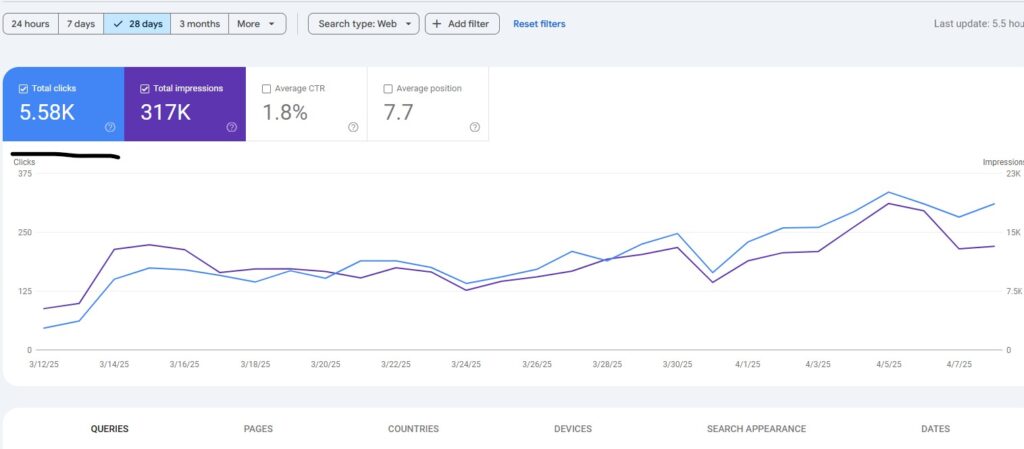Sometimes the best SEO case studies don’t start with a big budget or elaborate plan. This one started with a test.
I started working on a small info site in the food niche a few months ago, targeting US traffic. At the time, it was pulling in around 200–250 clicks per month. The goal? To try out a few ideas around UI/UX, semantic content structuring, and topical clustering.
Fast forward to today… the site has now crossed 5,000 clicks/month, with 8,850+ total clicks in the last three months.

What Changed?
Here’s exactly what I did between the last update and now:
1. Built a Simple, Niche-Relevant Tool
Instead of chasing flashy features, I added a basic but helpful tool directly related to the food niche. It was designed purely to serve the audience’s needs.
-
No complex development.
-
Just a clear value.
Result? Better engagement and longer session times—exactly what Google loves.
2. Foundation Link Building (Free-Only Strategy)
Forget paid backlinks or guest posts. I built about 50 foundational links using:
-
Free directories
-
Web 2.0 platforms
-
Citation sites
This was enough to build initial trust, and then I let the content do the heavy lifting.
3. Continued Semantic Optimization
This part made the real difference:
-
I doubled down on semantic hierarchy
-
Organized content into proper topical clusters
-
Strengthened internal linking using pillar–subpage structure
All optimized for user intent and contextual relevance.
Snapshot of Results
-
Monthly Clicks: 5,000+
-
Total Clicks (Last 3 Months): 8,850+
-
Impressions: 582,000
-
CTR: 1.8%
-
Average Position: Now below #8

👉 One event-based spike even brought in over 4,000 clicks in a single day!
Key Takeaways
Here’s what I learned from this mini case study:
-
Simple tools = Big value
They improve UX, earn backlinks naturally, and increase time on site. -
Free links still work
You don’t need to spend hundreds to build authority when your content has value. -
Structure beats shortcuts
Clean semantic organization outperforms one-time tricks or hacks.
Final Thought
Don’t overthink your next project.
Start lean. Test ideas. Track results. Tweak what works.
That’s where real SEO growth happens.
